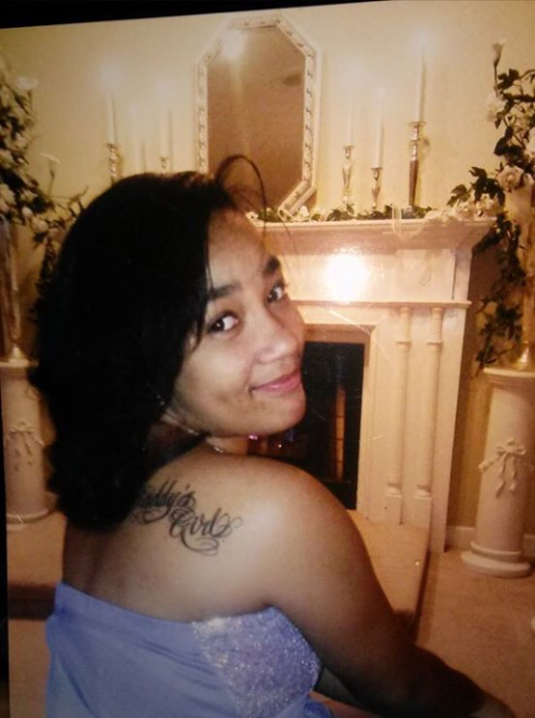By CAITLIN McARTHUR
Capital News Service
LANSING — When Tiana Randolph was 14, she called the police on her mother and stepfather, concerned about the safety of four younger siblings.
Little did she know that call would split Tiana and her brothers and sisters apart.
The younger children ended up in foster care shortly after the call. Tiana followed three years later, but not into the same home.

Tiana Randolph, 18, has been separated from her siblings after their adoption. Photo courtesy of Tiana Randolph.
Tiana was able to see her brothers and sisters regularly in recent years — but two were adopted in the past six months, and Tiana told lawmakers at a public forum earlier this year that she has not been able to contact them since.
“I don’t understand why, when my only intentions were to protect them,“ Tiana said. “I didn’t know they would be taken away from me as a result.”
Sibling separation is a problem plaguing Michigan’s foster care system, child advocates say. Bob Wheaton, communications manager for the Department of Human Services, said around half the siblings who enter the system end up being split into different homes across the state.
“The preference is to try to keep siblings together, if that’s possible,” Wheaton said. “If there’s large sibling groups, sometimes it’s not possible to find a placement that can handle all those children in one place.”
The issue was a major theme at an Oakland County KidSpeak event earlier this year, where Tiana and other foster children shared stories with legislators and state child welfare officials in hopes of inspiring reform.
Children’s advocate and sponsor of the KidSpeak event Saba Gebrai said splitting up siblings is one of the biggest problems with state child welfare operation. Children lose connection with their heritage, she said, and become disconnected from their identity.
“Their No. 1 advocates are their siblings. How do you make up for that?” said Gebrai, director of the Parks West Foundation and Blue Babies Initiative, which offers care and support to youth who age out of the system. “That’s a major issue when you’ve taken away the child’s No. 1 defense system and support.”
Tiana, an 18-year-old Wayne County resident, will graduate high school in June and hopes to study nursing, but the possibility of losing her remaining siblings has her facing a tough choice. Tiana, who has aged out of the foster system but is eligible to stay with her foster carer until she turns 21, is considering applying to adopt her other two siblings, before they disappear into the system.
Tiana said her 10-year-old sister has behavioral problems, which might make it less likely that she is adopted before Tiana gets her degree.
“I want to go to college and at least get my bachelor’s degree before I get her, but if I have to do it during college, I will,” Tiana said.
Tiana said her own foster parent has been supportive but worries about the pressure she is putting on herself. Tiana said she understands it is a lot to take on, but she also feels like she’s running out of options.
“I just feel like, in four more years, they’re going to be adopted by then,” she said. “It’s a really long period of time.”
Adoptive parents have discretion to decide whether their new child should stay in contact with siblings under state care, unlike foster parents who must maintain that contact, Wheaton said by email.
“When siblings aren’t able to be adopted together, efforts are made to locate adoptive families who are willing to maintain contact between the siblings,” Wheaton said. “All adoptive families are encouraged to maintain some form of contact between siblings.”
Tiana said she is unsure why she has not been allowed to visit her siblings, guessing it was a preference of the adoptive families who wanted to cut ties with the biological family. She said the two adopted siblings are still seeing each other due to a relationship between the adoptive parents.
“How are you going to let those two see each other and not the rest?” she said.
Making matters worse, when Tiana’s first sister was adopted out, it was done without her knowledge.
“I had no clue. No one told me when the last visit was going to be, so I’m coming to visit and I’m thinking I might see everybody and I get informed my sister’s been adopted out,” Tiana said.
Foster care has recently become a focus for state legislators this term, with Rep. John Chirkun, a Democrat from Roseville, and Rep. Jim Runestad, a Republican from White Lake, looking to take a bipartisan approach to reform in the area. The legislators have started studying the foster care system with an eye to proposing changes later.
Wheaton said children going through the foster care system are subject to a very chaotic environment and the department wanted to emphasise it understands that and supports maintained sibling relationships.
“We do give support to sibling relationships and we try do that unless there’s a reason why it would not be in the child’s best interest,” he said.